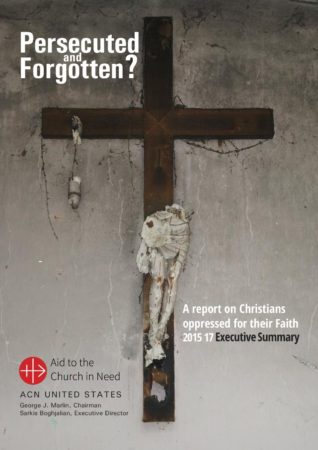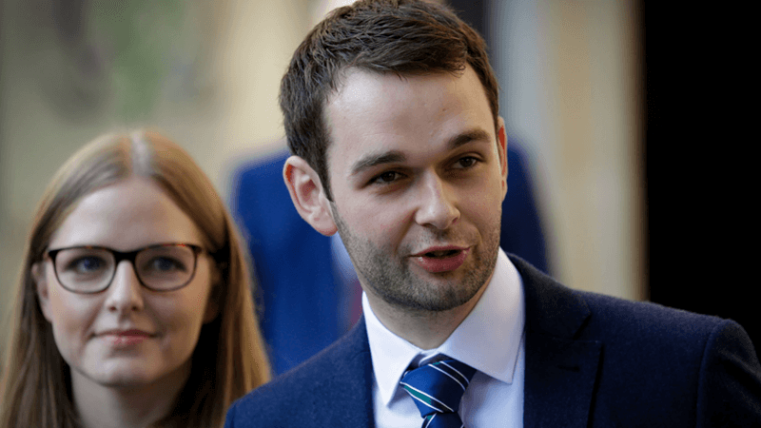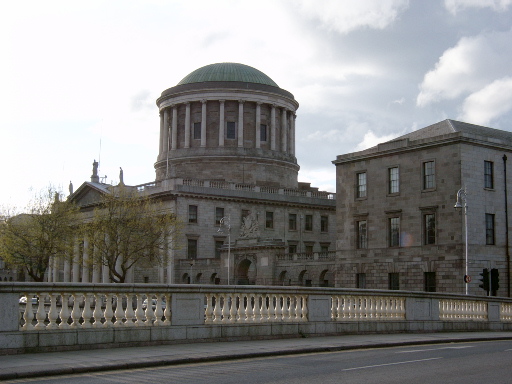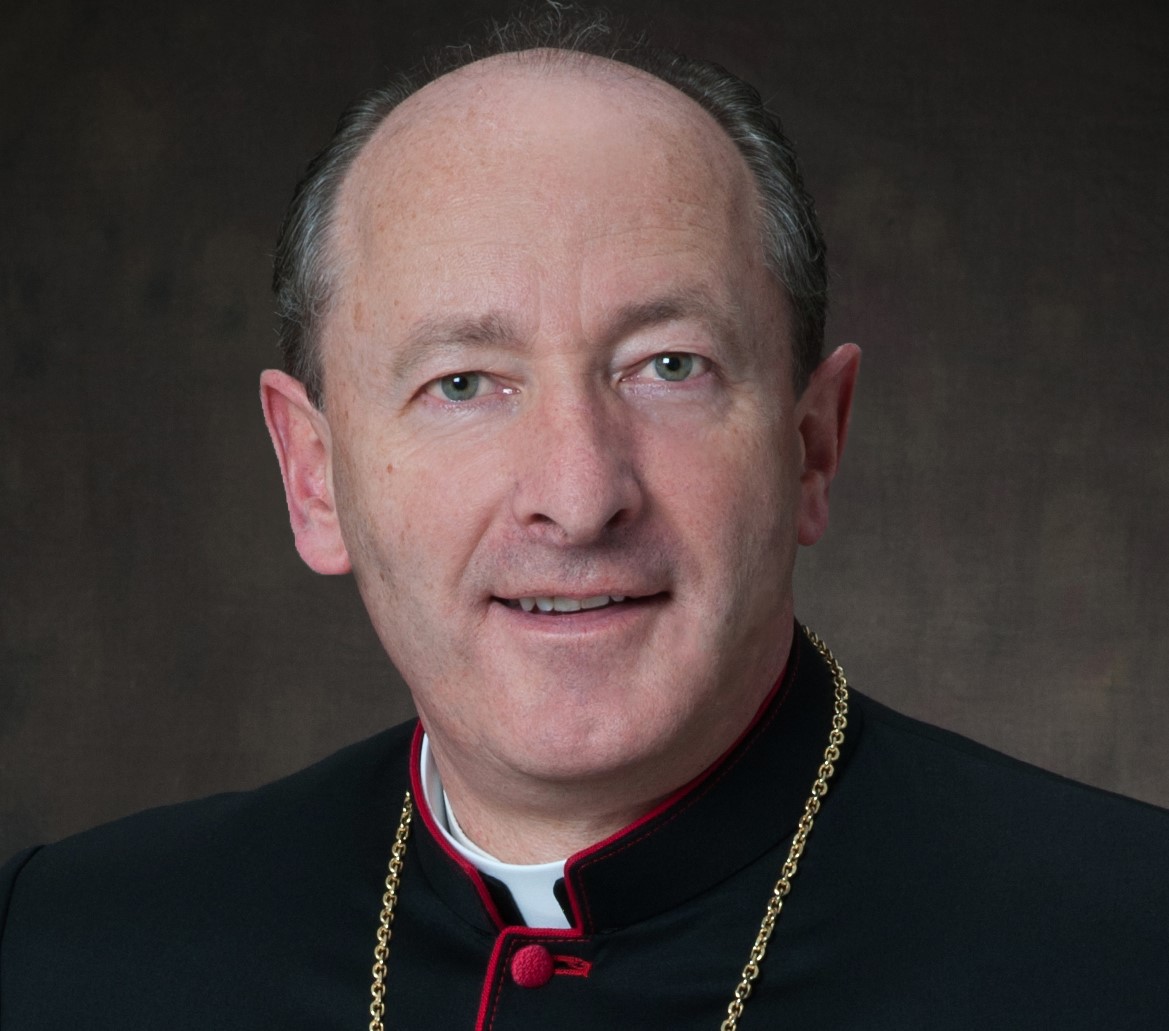
At the very minimum over three thousand Christians were killed for their faith in 2017 alone, although the true figure is probably far higher. The figures and the evidence for them were discussed in a report by an All-Party Parliamentary Group on International Freedom of Religion or Belief in the UK consisting of members of both the House of Commons and the House of Lords.
The report says that reported figures vary depending on how strictly you define a Christian, how you categorise the circumstances of their death, and how you count them.
Open Doors, a group that highlights persecution of Christians found that in the 12-month period ending October 2017, at least 3,066 Christians were killed for their faith.
Toward the middle of the scale, the International Institute for Religious Freedom, estimates between 4,000 and 6,000 Christians were killed for their faith in 2017. The institute argues that it often is difficult to determine with certainty whether a victim was a Christian, or if the killing was related to faith. As the aim is to estimate probable minimum and maximum numbers the numbers are somewhat larger than the bare minimum numbers of Open Doors.
At the high end of the scale, the Center for the Study of Global Christianity has estimated that 90,000 Christians were killed from mid-2016 to mid-2017 for religious motives. The figure is not based on an actual count but is declared “a calculated annual average over a 10-year period.” The number has its origins in an estimate for a ten-year period in the past that is averaged. The Center’s 2018 figure is a projection of that estimate into the present. The previous annual average over a 10-year period before 2010 was 100,000.

The Belfast bakery owners at the centre of the supreme court free speech ruling in the “gay cake” case have urged other Christians in similar situations to “take their stand”.
In the interview with the Christian Institute, Ashers’ general manager Daniel McArthur and his wife Amy McArthur admitted that the public nature of the case had been difficult, but say they have been comforted by the knowledge that they had done nothing wrong.
To other Christians who might be faced with a similar situation, Amy McArthur advised them “to not be afraid, to take your stand for God’s word because he is so faithful and he will bring you through it.”
She added: “The past four years has really strengthened my faith in God, his comfort and strength and peace — for that alone it would’ve been worth it.”
Daniel McArthur said: “This judgment carries so much weight because it guarantees free speech for Christians all over the UK. People ask you ‘was it worth it, going through all this?’ and I answer them ‘absolutely yes’. We knew we were doing what God wanted us to do and we believe we’ve been following his will.”

A leading member of the Medico-Legal Alliance has hinted that the country’s draft abortion law may face a legal challenge similar to the Asher’s Bakery freedom of conscience case.
Senior Counsel Ben Ó Floinn said it would be regrettable if such a challenge became necessary in order to secure a wide-ranging freedom of conscience for doctors who will not provide terminations.
Mr Ó Floinn told RTÉ News: “People campaigned (in advance of May’s referendum vote) on the basis of Freedom of Choice. Now that choice should be to allow a wide-ranging freedom of conscience to those whose consciences tell them they want no part in this.”
He said it would be ‘regrettable’ if a challenge similar to that in the Asher’s Bakery case became necessary in order to secure this freedom.

Minister for Health Simon Harris is disposed to allowing under 16s procure abortions without their parents consent or knowledge, according to Tipperary TD, Mattie McGrath.
McGrath said Harris was lobbied by the Social Democrats at a recent cross-party briefing in his office for “a World Health Organisation approach to termination”, which does not favour seeking parental consent in advance, and he said the Minister appeared to entertain the request.
A spokeswoman for Harris played down the claims but did not outright deny them. She said the minister had made no commitment at a recent meeting with opposition TDs, except that he would not deviate from the fundamentals of the abortion bill published before the referendum on May 25.
“In general, parental consent is required for children under 16 to have medical and surgical treatment and there are no plans to change that,” she said.
McGrath is concerned that the Health (Regulation of Termination of Pregnancy) Bill does not include a requirement that girls under 16 must have parental permission to get an abortion. He is planning to propose an amendment to the bill at committee stage to insert a requirement for parental consent except in cases of incest.

The right of medical staff to conscientious objection has been affirmed by the Supreme Court of Norway in an important ruling. The Court found that Dr. Katarzyna Jachimowicz acted within her rights when refusing to follow through with a medical procedure to which she had a moral objection. The Court held that health clinics and hospitals could not fire staff who asserted such objections.
In 2015, Dr. Jachimowicz lost her employment with a General Practitioner Clinic. She had refused to insert intrauterine devices (IUDs), which can act as abortifacients. Administering a procedure that could result in abortion contradicted her Christian faith.
International law protects the right of medical staff to conscientious objection. Nevertheless, her superiors fired her. A lower court found that she had acted within her right to practise medicine in accordance with her conscience but healthcare authorities appealed the decision. The case was then heard at the Supreme Court of Norway which ruled in favour of Dr Jachimowicz and in favour of conscience rights.

A transgender prisoner who was born male but identifies as female sexually assaulted female inmates after being switched to a women’s prison. He was jailed for rape.
While being held on remand, Stephen Wood said he had ‘transitioned’ from male to female in order to convince the authorities to place him in a women’s prison where he proceeded to sexually assault two female inmates.
But despite changing his name and wearing wigs and women’s clothing, Prosecutor Christopher Dunn expressed doubt about the sincerity of White’s change of gender, but nonetheless referred to White by his new name, Karen White, and using a female pronoun: ”She is allegedly a transgender female. . . allegedly because there’s smatterings of evidence in this case that the defendant’s approach to transitioning has been less than committed.
“The prosecution suggest the reason for the lack of commitment towards transitioning is so the defendant can use a transgender persona to put herself in contact with vulnerable persons she can then abuse.”
The court found the defendant guilty and sentenced him to life.

An abortion is comparable to “hiring a hit man” to eliminate a problematic person, Pope Francis said on Wednesday. He made his off-the-cuff remarks in an address to tens of thousands of people gathered in St Peter’s Square for his weekly general audience.
The pope denounced what he called the contradiction in allowing “the suppression of human life in the mother’s womb in the name of safeguarding other rights”.
“But how can an act that suppresses an innocent and helpless life that is germinating be therapeutic, civilized or even simply human?” he said.
“I ask you: ‘Is it right to ‘take out’ a human life to solve a problem? What do you think? Is it right? Is it right or not?” he said in unprepared remarks. Many in the crowd shouted “No”.
“Is it right to hire a hit man to solve a problem? You cannot, it is not right to kill a human being, regardless of how small it is, to solve a problem. It is like hiring a hit man to solve a problem,” he said.

The court found that Ashers bakery, whose owners Daniel and Amy McArthur are Christians, did not discriminate against the man and did not refuse to bake the cake for Gareth Lee because of his sexual orientation, religious belief or political opinion.
The president of the supreme court, Lady Hale, said: “The bakers did not refuse to fulfil his order because of his sexual orientation. They would have refused to make such a cake for any customer, irrespective of their sexual orientation. Their objection was to the message on the cake, not to the personal characteristics of Mr Lee.” She added: “Accordingly, this court holds that there was no discrimination on the ground of the sexual orientation of Mr Lee.”
The avowedly liberal, pro-gay marriage, writer and journalist, Fionola Meredith, welcomed the ruling and called the case costly, divisive and ill-advised. She was an early supporter of Ashers when the case first made the headlines. On Thursday she wrote that that support cost her ‘a few “liberal” friends: proponents of selective tolerance, who clearly aren’t as liberal as they like to think they are.’
‘To some, standing up for Mr and Mrs on this particular issue was an act of hateful, even fascistic betrayal. A fellow journalist informed me that my views “put me to the right of the DUP”.’

Doctors who conscientiously object to abortion “will be railroaded out of practice”, said the Bishop of Waterford and Lismore, Alphonsus Cullinan.
He told radio station WLR on Tuesday “that’s the stark reality. It affects not just doctors, but midwives, pharmacists, all people who will be directly involved with the provision of something, if they don’t agree with it.”
Dr Cullinan said freedom of conscience was a human right under the UN declaration of human rights.
He said the Government could choose a system such as exists in New Zealand where doctors can opt in or out of the scheme if they wish.
“So we’ll see if we are really in a pluralistic society where people’s consciences are respected.”
Dr Cullinan said doctors, even if they conscientiously object to abortion, will have to refer the woman to someone they know will carry out the abortion. “Now that’s like saying ‘I won’t pull the trigger, but I’ll give the gun to the next guy’, knowing that he or she will pull the trigger. That is not respecting the right of freedom of conscience of the individual.

Far more new resources for daycare of children, rather than homecare, have been announced in the latest budget.
Speaking in the Dail, Minister for Finance, Paschal Donohoe said the credit for home carers – available to those who stay at home to mind children or an older person – will be increased by €300 to €1,500.
However, the Minister said funding for early learning and childcare will increase by just under €90 million to €574 million. This funding supports both the ECCE Pre-School Programme and the Affordable Childcare Scheme.
He told the Dail the income thresholds for the Affordable Childcare Scheme will increase so that the base income threshold is being raised from €22,700 to €26,000; the maximum income threshold will go from €47,500 to €60,000; and the multiple child deduction will increase from €3,800 to €4,300.
The Stay-At-Home Parents Association Ireland, in acknowledging the increase of €300 in Home Carer Tax Credit in the Budget, noted that in net terms this might amount to an extra €2 a week and that “those who fall outside of the tax bracket or who are cohabiting will not benefit”.
Spokesperson for the association Pauline O’Reilly said ‘after tax this amounts to very little and those who really need the support most are left out in the cold. Even as it stands it is below the increase in social welfare payments.’
‘All children matter regardless of the income of their families. We have been calling for the Universal Affordable Childcare Scheme payment to be paid directly to families so that they can make a decision over how and where children are cared for.’
‘Those who are Stay-At-Home Parents make up the majority of parents in the country and receive no social welfare benefits as they are not considered to be available for work,’ she said.